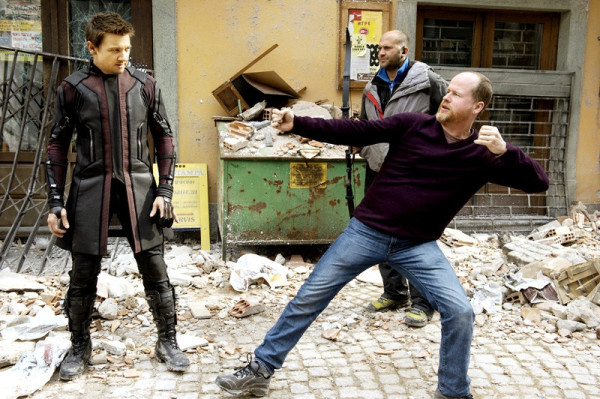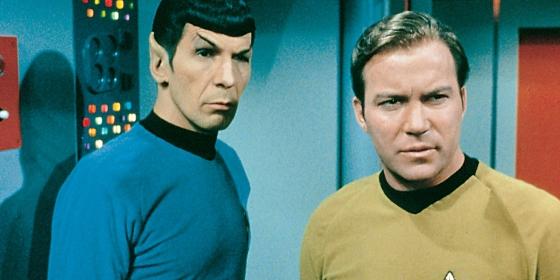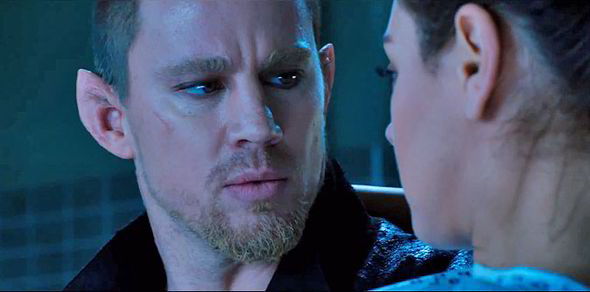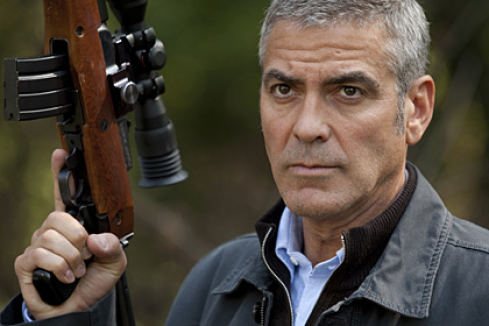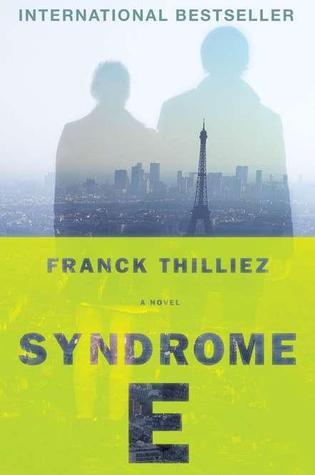Scriptshadow 250 Contest Deadline – 87 days left!
Genre: Superhero
Premise: When Tony Stark accidentally unleashes a villainous robot upon the world, it’s up the Avengers to send him back where he came from.
About: Avengers: Age of Ultron was supposed to break all box office records this weekend. However, Disney never could’ve predicted when they snagged the date two years ago that Floyd Mayweather would finally stop ducking Manny Pacquiao. And hence, the Saturday ticket sales for Avengers were way lower than expected. This meant that Avengers finished below one of the 37 Harry Potter movies for the single-weekend box office record, although analysts are still trying to figure out which Harry Potter movie it actually was (because of, you know, how many there were). Still, the film made 8 quatillion dollars so Disney’s not fretting too much. This completes Joss Whedon’s contribution to the series. The next two Avengers movies will be passed off to Captain America 2 directors Joe and Anthony Russo. After that, things become interesting. The Marvel Universe will likely choose to reboot everything (from the actors to the films themselves) which is a phase they haven’t had to deal with yet. Until then, though, viva la superheroes!
Writer: Joss Whedon (based on the comic book by Stan Lee and Jack Kirby)
Details: 141 minutes
In a recent Scriptshadow Newsletter I commented how we were moving away from the dark serious world of superheroes that Christopher Nolan initiated into more fun-filled fair. If Avengers: Age of Ultron is any indication of the kind of fun we’ll be getting, please bring back Nolan.
I purposefully avoided all details about this movie going in as I wanted to see it fresh. And I noticed something curious almost immediately. “Man,” I thought, “Joss Whedon sure did an aggressive director’s pass on this screenplay.” How did I know this? Well, because literally every fourth line of dialogue was a quip. So Iron Man would say something like, “Everybody needs to loosen up.” And Captain America would reply with something like, “Says the man encased in metal.”
This would’ve been fine had it happened, oh, I don’t know, three? Maybe four times? But when it happens SEVENTY-FIVE F***ING TIMES, it’s a little overboard, don’t you think? Screenwriters all have their go-to moves. For Tarantino, it’s his long dialogue scenes where the characters appear to be talking about nothing. For Woody Allen it’s a character who drones on about the meaninglessness of life. And with Joss Whedon, it’s quips.
Part of being a good screenwriter is restraining yourself so you don’t keep going back to the well. Cause if you start doing the same thing enough, the audience begins to notice it, and then you’ve done the worst thing a writer can do, which is break the suspension of disbelief.
After the film, I checked online to see that Whedon didn’t just do a director’s pass, he’s got sole screenwriting credit! Which explained this and so much more. And by “so much more,” I mean that Avengers was basically an extended episode of Buffy the Vampire Slayer. Heck, he even found a way to sneak a witch into the plot!
“Ultron” centers on Tony Stark’s continued obsession with pushing the boundaries of technology. He’s created an artificially intelligent being inside his computer, which quickly finds itself an exterior robot body to jump into. This robot’s name is Ultron and he really hates Tony Stark and the Avengers because… okay, let’s just be real here, because they wouldn’t have a movie otherwise.
Ultron decides that he’s really into meteors for no reason and rigs the underside of a small Eastern European city to break away from the earth, fly up into the stratosphere, then shoot back down to earth like a meteor and – I guess – destroy half of earth in the process. Although it’s never made clear how this would actually destroy half of the earth.
Despite the Avengers having the strongest God in the universe, the strongest robot in the world, and the strongest monster in the world, they determine they can’t defeat Ultron alone, and so they create… something I can only describe as a dull-colored caped crusader. Despite a lot of the superheroes trying to explain what this man is (“He’s a biological extension of an A.I. program with Tony Stark’s virtual assistant’s voice?”), nobody knows for sure. What we do know is that he’s the strongest man ever. Which gives them a fighting chance to defeat Ultron.
Putting my quipping issues on hold for the time being, I noticed a few things about Avengers 2 that I hadn’t thought of going in. First, it LITERALLY has something for everybody. It has a great actor in Robert Downey Jr. to bring in the older crowd. It has Chris Hemsworth to bring in the swooning female Fifty Shades crowd. It has Scarlett Johannson to bring in the internet-distracted teenage boy crowd. It has superheroes to bring in the kid crowd.
There’s a reason this movie will make more money than any other movie this year (yes, probably more than even my beloved Star Wars). It’s the PERFECT STUDIO MOVIE. It gets every single demo into the theater. And it does so ORGANICALLY.
By that I mean it’s not adding these things to the film specifically to bring in certain demographics. Audiences can smell when studios do that from a mile away. The premise of a team of superheroes trying to save the world naturally hits every demo out there. Which is really rare.
And yet, as a standalone story, Avengers: Age of Ultron, fails. It wasn’t as bad as the Mayweather-Pacquiao fight, but it makes that classic mistake all superhero sequels make – that MORE must be better. More superheroes. More villains. More battles. More storylines. And that NEVER works. And I know that Joss Whedon knows this. I’ve heard him talk about it before.
Look at a movie like Captain America 2, which many consider to be the best Marvel film so far. It’s no coincidence that that film was one of the smallest in scope of all the Marvel movies. This forced them to be more creative and come up with better ideas (instead of bigger ones). Two of the most memorable sequences in that film took place in a) an elevator. And b) a stopped car! And both were FAR more compelling than Ultron’s giant city floating up into the clouds.
Or take Ultron’s best set-piece: Hulk vs. Iron Man. That was a cool fucking set piece! I loved this “Iron Man Emergency Pack” that shot down from a satellite and kept equipping Iron Man’s suit whenever the Hulk would bust it up. Genius idea there.
And yet I FELT NOTHING during the fight. Why? Because it had nothing to do with anything. There were no stakes attached (story or emotions-wise) at all. Let’s say Iron Man loses the fight. The Hulk then what? Kills 700 people instead of 500 before turning back into Bruce Banner? I didn’t even know what city they were in so why would I care about who died? It’s clear the sequence was put there for one reason and one reason only – because it was cool. And that’s the worst reason to put a set piece into your screenplay. You add something to your story first BECAUSE IT MATTERS. Then you figure out how to make it cool.
I’ve said this before – it’s very difficult to steer a screenplay for a movie this big into any sort of creative vision. You’re dealing with too much money and too many powerful forces wielding their influence over the final product. Still, I was hoping for something a little better than what I got. Here’s where I’d rank Ultron along with the rest of the Marvel films.
1) Iron Man
2) Guardians of the Galaxy
3) Captain America 2
4) Avengers
5) The Incredible Hulk
6) Captain America 1
7) Avengers 2
8) Thor
9) Iron Man 3
10) Iron Man 2
11) Thor 2
[ ] what the hell did I just watch?
[x] wasn’t for me
[ ] worth the price of admission
[ ] impressive
[ ] genius
What I learned: Avoid using premonitions at all costs. They’re the sloppiest most hackneyed storytelling device there is, and are almost always used as a cheat. In screenwriting, you must constantly come up with REASONS for why your characters do things. And the clearest most powerful reasons are always the best. Indiana Jones needs to find the Ark because if he doesn’t, Hitler will. A premonition is the opposite of that. It’s a vague vision that holds no weight in reality. Maybe it will happen, maybe it won’t. So it doesn’t carry nearly the punch that REAL motivation does. Look at a couple of really bad movies that have used this device in the past. Matrix: Revolutions (Neo has a premonition that Trinity will die). Star Wars: Episode 3 (Annakin has a vision that Padme will die). And here in Ultron, we have Thor going off on some tangent adventure because he had a premonition. It’s no coincidence that that ended up being the most pointless thread of the entire movie. — The one genre premonitions can work in is horror films. But they must be intricately woven into the story. They can’t just be slapped in there to get your character to do something you’re too lazy to come up with a reason for otherwise.

Keep those Scriptshadow 250 entries coming. In the meantime, here’s another batch of scripts to check out. The amount of horror scripts sent in this week outranked all other genres 4 to 1. You guys really like horror! I was able to slip in a few non-horror scripts though, for those who don’t want to get their scare on. Make sure to give the writers feedback in the comments section!
Title: Vampires in Sunland
Genre: Horror
Logline: A young girl coming into adulthood must battle a motley group of vampires who have taken her boyfriend hostage.
Why you should read: I wanted to try my hand at something more commercial, for my scripts usually are not, and so “Vampires in Sunland” (Sunland, California) was the result. As a fan of the film Lost Boys, I wanted to bring a little of that flavor back into the vampire genre, but not without adding my own dash of spices. In this case a demonic element. I also wanted to play with gender roles, in this the female is the heroic action star and the male is the “mansel” in distress she must save. As well as a main villain who can change genders whenever it wants to best suit its victims.
Title: Ghostlight
Genre: Horror
Logline: When a series of strange murders occur during rehearsals for the school play, an awkward drama geek must find out who or what is behind the killings- or there will be no opening night!
Why You Should Read: I’ve been a drama teacher for the past ten years, and been in the theatre for over twenty- I know theatre, it’s superstitions and mystery. I also know teen agers, what they like and how the speak. I have had my students read the script, and across the board they love it and are begging me to get it made. Think “Cabin in the Woods” meets “Glee.”
Title: Inspired
Genre: Crime/Drama
Logline: During the hedonism of 90s Hollywood, a desperate writer’s career unexpectedly blows up when he starts writing about the crimes he’s committing, putting his Hollywood success on a collision course with the law.
Why you should read: My previous submission (Devil in You, Oct ’14) was relatively well received, “the minimum level of quality required to get made” is basically how it was described. So not outstanding, but still readable. — I believe I’ve progressed with this script. Hopefully I’ve been able to take on board some of the notes from yourself and the SS community about issues in my previous script in order to take ‘Inspired’ to the next level. — 1990s Hollywood was a crazy time, the town’s wealth was reflected in the insane ‘spec wars’, huge actors salaries, and notorious parties. I hope all of that and more is reflected in the script.
Title: The Big Decay
Genre: Film Noir/Horror
Logline: A private detective finds himself embroiled in a scandal that involves junkies with zombie-like behavior.
Why you should read: Some of my favorite films are classic film noirs such as Out Of The Past, Double Indemnity, and The Asphalt Jungle. My other favorite genre is horror movies. I thought to myself, “What if I combined these to create something unique?” With that as my basis, The Big Decay was born. I’m not sure if I’m considered a professional, or amateur. I’ve written and produced a straight to DVD horror film, and I’ve produced other feature films. Technically, I guess I’m a professional. However, I have no industry contacts, and no agent.
Title: Universal Love
Genre: Romantic Comedy
Logline: A female writer suffering from writer’s block develops a romantic bond with a man who she thinks is perfect, unaware that he is the alien from her story.
Why You Should Read: I am Kristopher M. Newcome. I enjoy writing and reading screenplays. The film’s logline took second in the Ultimate Logline contest. It won in March under the title, “Space, Time, and Beyond.” The category was female protagonists. I get to attend Scriptfest at the end of May. I get to listen to several speakers including Diablo Cody, and pitch my script to Twenty executives. I think it is really amazing what you do, and I hope you enjoy the script if you pick Universal Love to review.
Get Your Script Reviewed On Scriptshadow!: To submit your script for an Amateur Review, send in a PDF of your script, along with the title, genre, logline, and finally, something interesting about yourself and/or your script that you’d like us to post along with the script if reviewed. Use my submission address please: Carsonreeves3@gmail.com. Remember that your script will be posted. If you’re nervous about the effects of a bad review, feel free to use an alias name and/or title. It’s a good idea to resubmit every couple of weeks so your submission stays near the top.
Genre: Biopic
Premise (from writer): In 1964, writer Gene Roddenberry struggles to get his vision on television – a show called “Star Trek”.
Why You Should Read (from writer): Three reasons. One – unlike other biopics which give you the whole Wikipedia routine, my script focuses on a year-long period in a man’s life, during which he has a clear goal. Two, it could generate a discussion on the act of using licensed properties you do not own in a spec written as a sample. (Like “Wonka”, which I am certain will not be made unless Roald Dahl’s zombie corpse approaches a production office, gobstopper in hand, and signs off on it while offering casting notes: “Two words: Get Gosling.”). And, three, my script comes from the heart. My father passed on in ’91, when I was kid, and one of the things he instilled in me was a love of science fiction, particularly “Star Trek”.
Writer: Jack McAuley (based on the books, “Inside Star Trek” by Herbert F. Solow and Robert H. Justman, “Star Trek Creator” by David Alexander, and “Star Trek Memories” by William Shatner with Chris Kreski
Details: 106 pages
Man, there were some HARSH reactions to last week’s batch of amateur scripts. Let’s remember that we’re trying to be critical but supportive. The idea here is to help writers improve.
Because no single script won out in AO, I’ll be reviewing the most talked about entry, “To Boldly Go.”
I’ll start off by saying the Black List LOVES these scripts. In fact, if the Devil came to me and said, “If you don’t write a screenplay that makes the Black List this year, you’re coming down to hell with me,” the type of script I’d choose to write wouldn’t even be a contest. I’d write about a famous author’s early life and the influences it had on his greatest work. It’s like Black List crack that set-up.
And the scripts don’t even have to be that good! From the ones I’ve read, I’d say at least half are boring. It seems that the idea alone carries enough weight to overshadow the execution. It’s this secret formula that’s only talked about in basements between successful writers (“Can you believe how rich we are now? All we had to do was write about an author’s early life!”)
To Boldly Go starts off introducing us to a young Gene Roddenberry and his father, a police officer. The two are strolling through the neighborhood when the father makes a racist remark after spotting a young black boy. This is followed by a montage that covers Roddenberry’s service in World War 2 as a pilot and his eventual transition into commercial piloting.
After Gene nearly dies in two plane mishaps (one a crash), he decides to move into a job less suicidal: screenwriting (clearly, Roddenberry has never written before). He moves to Los Angeles and finagles his way onto some TV shows, until he comes up with an idea for his own show, a science fiction series where a space ship crew travels the galaxy. This was in 1964, at a time where nobody had attempted something of this scope on television.
The remainder of the story chronicles the making of the show, everything from finding a director to casting the part of Spock. When the studio doesn’t like what Roddenberry comes up with, they give him a second chance for some reason, and he recasts everyone (save Spock) and turns the show into more of an action-adventure. Although the show was cancelled after three seasons, it would later inspire five spin-off series and twelve feature films and become one of the most recognized science-fiction brands ever. It is the original “Universe” approach that every studio in town has adapted today.
One of the things I still have a hard time grasping in screenwriting is theme. Sometimes it feels so clear and other times wholly elusive. But today’s screenplay helped me understand theme about as well as I’ve ever understood it. And that’s because there wasn’t any. And that’s what kept To Boldly Go from working.
Instead of there being a unified message to keep going back to in To Boldly Go, we got a hodge-podge of events that happened to Roddenberry over the course of his lifetime – mostly in relation to Star Trek. Everything from Roddenberry’s infidelity to escaping a plane crash to looking for an associate producer. Put frankly, the message was all over the place.
I went back to the comments for Amateur Offerings, and someone brought up how interesting it was that Roddenberry’s father was a racist, and how that was an inspiration for him to create a racially diverse cast on Star Trek.
Now THAT to me is a story. THAT to me is a theme you can hang a movie on. And yet, it’s BARELY covered at all here.
Instead, we get the technical details of how the show came together (the hiring of the costume guy, the production designer, the music guy). There’s no drama in that (or at least there wasn’t any here). Even William Shatner, who it’s well known is one of the most difficult people ever in show business, is rosy and happy and agreeable in this.
If you know, going in, what your theme is – say it’s a man hellbent on changing the white-washing of television shows because his father was a racist – then it’s easy to figure out what does and doesn’t belong in your script. Take Roddenberry’s infidelity. Can infidelity lead to drama? Sure. But since it has no bearing whatsoever on a man trying to break down racial barriers in television, there’s no reason to include it.
Personally, I think that’s a great storyline to focus on – the race stuff. Because nobody knows that. Everybody knows that Spock has weird ears. With a biopic, you have to give us the stuff we don’t know and a young boy who was so affected by his father’s racism that he wanted to change the world with a multi-ethnic show – that’s a fucking movie right there. I’d go see that. What I wouldn’t go see is a highlight reel of kooky things that happened on the Star Trek set. There’s no depth to that.
This leads to my second problem with the script which was the lack of conflict. For a show that was so cutting edge and unlike anything that came before it, where was all the resistance? Where was that one executive who hated the idea and was constantly trying to kill it? There was no drama on that side of the story. It was, again, technical historical bullet points combined with occasional goofy memories (having to stop filming because pigeons were on the set).
For example, when the show’s pilot goes bad, they’re just offered another pilot on the spot. The characters don’t have to do anything, don’t have to earn anything. They simply get a call that says, “We didn’t like that. Try again.” The last thing you want to do in any script is magically solve problems for your characters. You need your characters to encounter obstacles and then to overcome them themselves, regardless of if that’s not the way it happened in real life.
This scene, in particular, embodied the casual, “no problem’s really that bad” nature of the script. It comes after the network reads the three potential scripts for the new pilot.
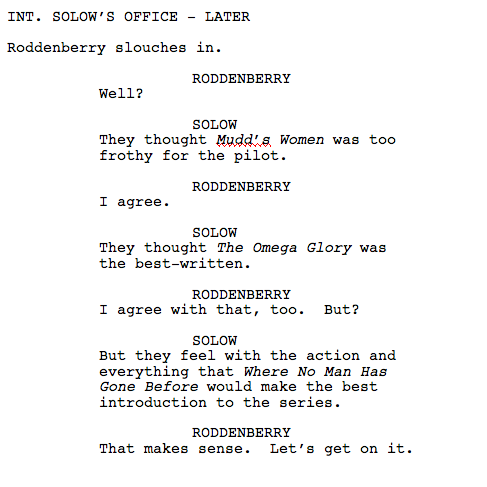
As you can see, even when there are problems, they’re just solved instantly. All the characters have to do is listen.
There are some dialogue issues here as well. Mainly, the characters sound too stiff, technical, or robotic. Take this line from Roddenberry when he’s told he has to reshoot the pilot: “But they want me to get rid of Spock. I am therefore going to keep him, anyway.” I don’t know anybody who talks like that who isn’t sitting on a leather chair in front of a fireplace smoking a pipe. How bout, “They want me to lose Spock. They might as well tell me to lose space.” Relax the dialogue. Have a little more fun with it. Contractions, overlapping, less formal-speak. All those things will help.
I do think there’s more leniency in the industry when it comes to these scripts. A lot of people are just keen to go down memory lane. I remember that’s exactly how that Black List Chewbacca script played out two years ago. But for me? I need more. And I think writers should demand more of themselves as well. Give us a unifying theme. Give us more conflict. More drama. Little highlights here and there are fun. But they shouldn’t be the centerpiece of your script.
I hope these notes were helpful for Jack because I do think there’s a story here somewhere and with the industry falling over itself for these kinds of scripts, I think it’s worth figuring out.
What did you guys think?
Script link: To Boldly Go
[ ] what the hell did I just read?
[x] wasn’t for me
[ ] worth the read
[ ] impressive
[ ] genius
What I learned: Unless it’s a conceit that’s built into the premise, repeating things in screenplays very rarely works. I lost a lot of interest when we went through this whole pilot only to be told that we would now participate in the exact same process for a second pilot. I suppose if the second run-through is significantly different from the first, it might work, but this one wasn’t. It felt like the same general issues (casting, figuring out the script) that we’d already dealt with. In a movie like “Edge of Tomorrow,” the repeating structure is an essential component of the premise. Here, it just feels like we’re doing the same thing over again.
Looking through the Scriptshadow 250 Contest (3 months left to sign up!) entries, I’ve noticed a surprising number of “blockbuster-type” scripts, the kind of screenplays writers hope will become the next big studio franchise. With the summer blockbuster season on our doorstep (Avengers tomorrow! Yay!), this got me thinking – what is it on the writing side that makes a good blockbuster? Because a lot of people don’t think there’s a difference when it comes to these films. When I complain about the believability or the attention to detail of these movies, I’m told, “Stop being so critical! It’s a popcorn flick! Just enjoy it!”
I can’t tell you how much I HATE IT when people say that. Just because it’s a popcorn flick does not give it permission to suck. There are good popcorn movies and bad ones and it’s important, as writers, to know the difference, lest you write the next Lone Ranger. Which is how I came up with today’s article. I want to figure out how to differentiate between the two.
Now in order to achieve this, we’ll have to make some concessions. Namely, super high-profile IP doesn’t count. Batman and Avengers movies are always going to have the most money for effects, production, and marketing. These movies couldn’t make less than a billion bucks if they tried. So, for the “good” blockbusters, I’ll be highlighting films that were surprise hits. That tells me the studio didn’t buy the box office, but rather it was generated organically.
For the “bad” blockbuster movies, I’ll do the opposite. I want to highlight movies that DESPITE the studios spending tons of money on them, they failed. That tells me that the films had to be unappealing in some way or just plain bad.
Now you’ll notice that some films look like they did okay (Battleship made 300 million dollars), but you have to remember that a film’s financial success/failure is relevant to its cost. Seeing as 300 million dollars covered Battleship’s production and marketing costs, the film actually lost a ton of money. Plus it was just a terrible film, which, for the sake of screenwriting, is what we’re focused on here.
Speaking of money, blockbusters these days can make up to 75% of their grosses internationally. For that reason, I’ll be covering WORLDWIDE grosses instead of domestic. That’s really how you judge a blockbuster’s success these days anyway. Finally, I’m going to try and keep this list recent, since trends 20 years ago aren’t as relevant today. So with that understood, here are the lists:
SURPRISE BLOCKBUSTER HITS (worldwide gross)
Guardians of the Galaxy – 775 million
The Kingsman – 401 million
Sherlock Holmes – 524 million
The Fast and Furious Franchise – 1 quatrillion dollars
The Hunger Games – 690 million
Pirates of the Caribbean – 654 million
Inception – 825 million
World War Z – 540 million
Life of Pi – 609 million
Snow White and the Huntsman – 400 million
SURPRISE (TO THE STUDIOS) BOX OFFICE FAILURES (worldwide gross)
The Lone Ranger – 260 million
Battleship – 303 million
White House Down – 205 million
Jupiter Ascending – 181 million
Jack Ryan: Shadow Recruit – 135 million
John Carter – 284 million
After Earth – 243 million
Green Lantern – 219 million
Cowboys and Aliens – 174 million
47 Ronin – 150 million
Since many people see movies based on marketing (posters, trailers, etc.), how is screenwriting even relevant here? Well, let’s remember: writing isn’t just about what you put in between the margins. Writing is concept. Writing is character. And writing is an attractive storyline. These are all things audiences will pick up on in a poster, a two minute trailer, or a conversation with friends. If a concept is flawed to begin with, it’s a safe bet the writing’s bad.
So, first thoughts. I noticed that three of the breakout successes followed a popular creed I preach on Scriptshadow. If you want to write a blockbuster, find a fresh angle on an established genre or movie trope. Kingsman is a light-hearted cheekier version of James Bond and Jason Bourne. Sherlock Holmes is a “Rock n Roll” version of the usually buttoned up character. World War Z took the zombie trope and turned it into an action movie.
Second, don’t write blockbuster Westerns. Three films on the “bombs” list were Western-inspired (Cowboys and Aliens, John Carter, and The Lone Ranger). I remember a fourth as well, the Will Smith flick, Wild Wild West. For whatever reason, audiences don’t respond to this genre in blockbuster form. That’s the most obvious thing I see from this list.
I also noticed most of the good films are easy to grasp in concept form (and therefore easier to sell). Street racing. Zombies have taken over the world. Rock n Roll James Bond. Rock n Roll Sherlock Holmes. Rock n Roll Snow White. A kid gets stuck in a lifeboat in the middle of the ocean. A girl must fight against other teenagers in a battle to the death. The only two true exceptions to the rule are Guardians and Inception.
I notice a lot of writers grumbling about the fact that a film’s concept must be condensed into something that can be sold quickly, yet those same writers make judgments that way all the time. When’s the last time you saw a poster and said, “That looks stupid,” or “That looks good?” This is how people make decisions in an information-overload world so don’t knock it. Embrace it! It’ll help you become a better writer.
Case in point. Look at the bad films. What’s Battleship about? What’s 47 Ronin about? What’s Jupiter Ascending about? What’s John Carter about? What’s Green Lantern about? After Earth? In every case, the answer is quite murky and takes some explaining. A guy puts on a ring and all of a sudden he grows a green suit and travels the galaxy talking to aliens? Even a film which seems to have its conflict explained right there in the title (Cowboys and Aliens) is confusing once you start trying to explain it. It’s almost like you have to imagine yourself telling your friends about the idea. If you’re stumbling through your explanation, there may be something wrong with your concept (unless you’re Christopher Nolan, of course).
There’s also an element of “missing your window” to these entries. There are two times to hit. BEFORE anybody is doing something and WHILE they’re doing something. There’s one time to miss, and that’s when the bus has already left. So a movie like Guardians feels fresh. When’s the last time we saw a space opera with that kind of scope? A movie like Jack Ryan, however, seems like it’s coming too late on the heels of Bourne and a revived Bond. John Carter came after Avatar. Battleship after Transformers. White House Down after Olympus has Fallen.
This gives us the best peek into the differentiating factor yet. THINK DIFFERENT. You’re either trying to find a fresh angle on an old trope or you’re trying to come up with an idea Hollywood hasn’t embraced yet. This is further bolstered when you look at Inception and Life of Pi, two “out there” ideas that made huge splashes at the box office.
Of course, this can go both ways. Jupiter Ascending and Cowboys and Aliens were both “out there” ideas as well, and both bombed. We could delve into more specific reasons for why but the reality is, risk is risk. When you try something different, there’s just as much of a chance you’ll fail as a chance you’ll succeed. With that said, it seems to be the only clear-cut variable to success for these films. And I’d say this is QUADRUPLY so for spec screenwriters. Since you can’t show readers what the movie looks like on the page, giving them something different is really the only way to stand out.
I have a feeling that some of you will take the William Goldman approach to this data. “Oh, it’s all random. Nobody knows anything.” I would warn you against that. Since all screenwriters are essentially producers (investing in an idea they hope people will pay money to see), your skill-set must include market-theory. You have to have a strong feel for what works and what doesn’t. And the only data you have to help you form that opinion is past box office. So use it to your advantage.
Keen to hear your thoughts on this. Please share in the comments!
Genre: Mystery-Thriller
Premise: When a group of boys turn up dead with their skulls surgically detached, a broken down FBI agent must use a mysterious 50 year old short movie to find their killer.
About: Mark Heyman wrote Black Swan for Darren Aronofsky and if I had to guess, the producers here hired him in hopes of tempting Aronofsky to direct this film as well. It’s very dark and “Aronofsky-esque” so we’ll see what happens. The book the script is based on was written by French writer Franck Thilliez. The 41 year-old author spent 10 years in a computer engineering job he hated before he began writing (those of you in a dead end job that you hate – let this inspire you!). Syndrome E placed in the middle of last year’s Black List.
Writer: Mark Heyman (based on the novel “Syndrome E” by Franck Thilliez)
Details: 123 pages – March 6th, 2014 draft
Syndrome E has all the makings of one of those bad books that could turn into a good movie. From everything I’ve heard, the book is a mess, but it does have a lot of cool ideas in it. We have weird 8mm films, kids with their heads sawed off, and a 50 year-old mutli-government worldwide conspiracy. If someone could wrangle the best parts of the book into a cool serial killer script, you might have yourself something.
And I could see Aronofsky coming on-board, lending his one-of-a-kind voice and turning this into a sprawling cornucopia of visual mastery. However, if he doesn’t, I could just as easily see this going to some scrub who turns it into a straight-to-digital Girl With The Dragon Tattoo rip-off starring John Cusack.
Isn’t it funny how that works? That two people could take the exact same script and create two totally different experiences? But Syndrome E is that kind of script. The kind of thing that could turn into The Ring or Pulse depending on the talent involved.
Agent Frank Sharkovsky (Sharko) stumbles upon the kind of case every Federal agent dreads. Five dead kids dumped in a river. All boys. Each around 12 years old. To make matters worse, the top of their skulls have been sliced off and their brains removed.
Meanwhile, across town, local cop Lucy Brennan visits her fuck buddy, Dominick, only to learn he’s purchased an old 8mm film at a yard sale and after watching it has TURNED BLIND. Lucy watches the film herself and is shocked when it depicts boys having their eyes slit open and being placed in front of live bulls trained to maul them to death.
Lucy and Frank eventually find each other when their cases overlap, and start chasing leads all over the world. Sharko finds out that a similar case of boys with their scalps sliced off occurred in Egypt. The resistance he gets there tells him that they’re definitely on the right track.
Their clues eventually lead them to an orphanage in Canada of all places, where they suspect the movie was made. It’s through this revelation that they realize what someone’s been doing to these poor children – inducing something called “Syndrome E.” But what’s happening to these kids pales in comparison to how long it’s been going on…… and what it’s being used for.
I like mystery scripts.
They’re perfect for spec writing (even though this isn’t a spec) because what’s one of the easiest tools you can use to keep a reader around? Mystery, right? Or, as JJ Abrams calls them, “mystery boxes.” The very nature of this genre is to provide the reader with a constant flow of mystery boxes that he’ll want to stick around to open.
The question is, does Syndrome E provide too many mystery boxes? Are there so many mysteries that we forget or stop caring about what the ultimate mystery is?
I’d say… no. And credit goes to Heyman here. He kept something together that could’ve easily fallen apart in a lesser writer’s hands.
The structure for the first act shows why Heyman is one of the big screenwriting guns in town. Instead of setting up a traditional problem with a single protagonist, Heyman sets up two problems with two protagonists. The first is Sharko, who’s been assigned to this case of murdered boys. And the second is Lucy, whose boyfriend’s just found a reel of film that’s turned him blind.
As we follow these parallel storylines, they eventually collide at the end of Act 1, allowing the characters to head into Act 2 as a pair. This seems simple from afar but whenever you’re messing with time-tested storytelling structure, you risk losing your audience. Remember, the audience has been conditioned with a certain level of expectation. Break that expectation and they can be confused. Or worse, angry.
It’s like throwing a birthday party and instead of serving cake, you serve pie. That pie might be great. But if everyone was expecting cake, there’s going to be some disappointment.
However, once the two detectives start working together, the script eases into more traditional territory. We have a clear goal ahead of us: Find the killer. And even though we have two protagonists, their objectives are the same, so the story’s never at risk of losing focus.
Syndrome E also thrives on something I call the TURBO MYSTERY BOX. Standard mystery boxes have an excitement ceiling (and are so 2011). So why not create a bigger badder version of the mystery box? For example, at one point, our detectives get a lead. Is this lead downtown at a local church? Nope, that’s so “standard mystery box.” Instead, it’s in EGYPT! That’s the kind of weird but flashy mystery box that can amp up a story.
Despite Heyman’s best efforts, Syndrome E suffered from its own version of Syndrome E. And that was its dated subject matter. We’ve seen the whole “people strapped to chairs with their eyelids pulled open, forced to watch a film” thing before. And the reveal of why these kids were being used as test subjects was pretty heavily telegraphed, robbing the script of a shocking finale. I wish the mythology behind the whole conspiracy was more original.
But you can’t deny that the screenplay is a page-turner. The Mystery Box formula is used so effectively here that there’s always a plot point to look forward to. The story’s a little confused at times (Is this a horror mystery or a thriller mystery?) but if you liked The Ring or The Girl With The Dragon Tattoo, there’s a good chance you’ll like this too.
[ ] what the hell did I just read?
[ ] wasn’t for me
[x] worth the read
[ ] impressive
[ ] genius
What I learned: If you’re going to use an analogy in your description, make sure it’s there to convey information, not to show off. I see this with a lot of new writers, who try to impress the reader at every turn. They write analogies describing pointless things, like how the sun is setting. Just like anything in writing, the analogies you use should serve a purpose – to further the reader’s understanding of the moment. So in Syndrome E, when Sharko is in Egypt, he realizes his handler is part of the conspiracy. So he has to find a way to ditch her. This is what Heyman writes:
He starts going before she can protest. She watches him, anxious. Like an owner whose dog has slipped its leash.
You see how the analogy provides a detailed visual of how the handler reacts when Sharko gets away? The analogy visually conveys the level of desperation in her eyes. Compare that to a writer who uses an analogy for no other reason than to write an analogy.
The sun rises up from the horizon, like a wild horse who’s just woken up from a long slumber.
How does that sentence improve the reading experience?


